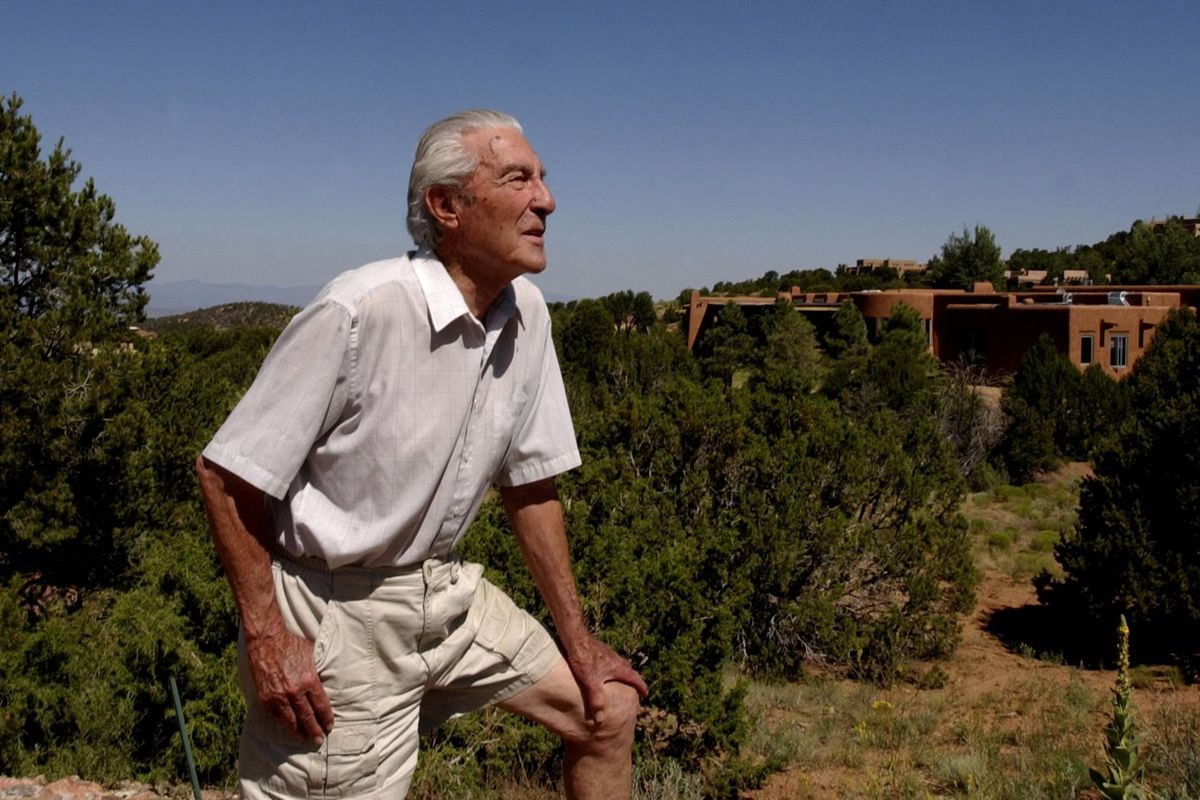When beauty was bipartisan: Documentary details legacy of politician and environmentalist Stewart Udall

Filmmaker John de Graaf interviewed former Interior Secretary Stewart Udall in 1988 for a documentary about David Brower, a prominent environmentalist and leader of the Sierra Club. More than three decades later, de Graaf released his documentary about Udall, “Stewart Udall: The Politics of Beauty.”
On Saturday, in advance celebration of Earth Day, Northwest Museum of Arts and Culture will show a screening of the film, followed by a panel with award-winning director de Graaf, as well as former Eastern Washington University recreation professor Barbara Brock and Tom Banks, adjunct professor of environmental science and conservation at Vincennes University and a former park ranger.
The documentary traces Udall’s legacy of bipartisan environmental leadership, including his role in endangered species protection, clean air and water legislation, limits on pesticide use, natural historic preservation, and more. But de Graaf’s 1988 interview with Udall centered around a mistake he made.
While an Arizona senator, Udall had voted in favor of Glen Canyon Dam, and as the Interior secretary, supported the construction of two dams outside of Grand Canyon National Park. The Sierra Club launched a campaign against this project, and Udall took his family on a trip to Grand Canyon to consider Brower’s position.
“One of the most important things for any public official is to be open-minded, and Brower helped me see things in a different light, and in that sense I’m in his debt, no question about it,” Udall said in the interview with de Graaf about reversing course on the Grand Canyon dams.
“That’s the thing that impressed me about Stewart when I first met him …” de Graaf said. “That’s an interesting thing for a political figure to say, I’m in debt to the person who showed me I was wrong.”
Udall made an impression on de Graaf, but it wasn’t until a newspaper published a retrospective of Udall’s life that de Graaf realized he wanted to do a deeper dive on Udall’s career and legacy. De Graaf has made over 50 films and estimates nearly half of them relate to the environment.
“I thought, ‘Well, I wonder what happened to this guy? He’s very cool.’ So, I started reading and thought, ‘Oh, someone should do a film about his life, it’s astounding,’ ” de Graaf said. “Of course, that had to be me because there were no films out there.”
Amanda Gardner, Northwest Museum of Arts and Culture adult programs and events manager, said she first heard about de Graaf’s documentary in August. Historian and filmmaker Laurence Cotton had an event at the museum about Frederick Law Olmsted, and Cotton recommended The Politics of Beauty. Gardner said she immediately reached out to de Graaf.
“Spokane audiences really like talks focused around nature,” Gardner said. “… John was kind enough to send me a copy of a link to his documentary, and it was so good.”
She added that the screening leads into to the museum’s May 4 exhibition, “It Happened Here: Expo ’74 Fifty Years After,” which is appropriate considering Expo ‘74’s theme was the environment.
“Stewart Udall: The Politics of Beauty” starts in his boyhood, in St. Johns, Arizona, following his rise to Congress and appointment to secretary of the Interior. The documentary looks at his relationships with presidents Lyndon B. Johnson and John F. Kennedy, and his influence on their views of conservation and natural beauty.
“We live in this very beautiful country, and we need to protect it,” de Graaf said. “Beauty is really an important thing in our lives – I’ve done a lot of studies on that … So, what Udall did in saving so much land and parks benefited everybody.”
The film also highlights Udall’s support of civil rights, and his work integrating the National Park Service, including hiring Robert Stanton, who went on to be the first Black director of the National Park Service.
Udall sought greater self-determination for the tribes, and when his political career ended, he spent a decade advocating for the “downwinders,” fighting for justice for the Navajo uranium miners who were diagnosed with cancer.
“He saw the flaws in the country and really felt that if we wanted to live up to the ideals of America, we had to do something about those things,” de Graaf said.